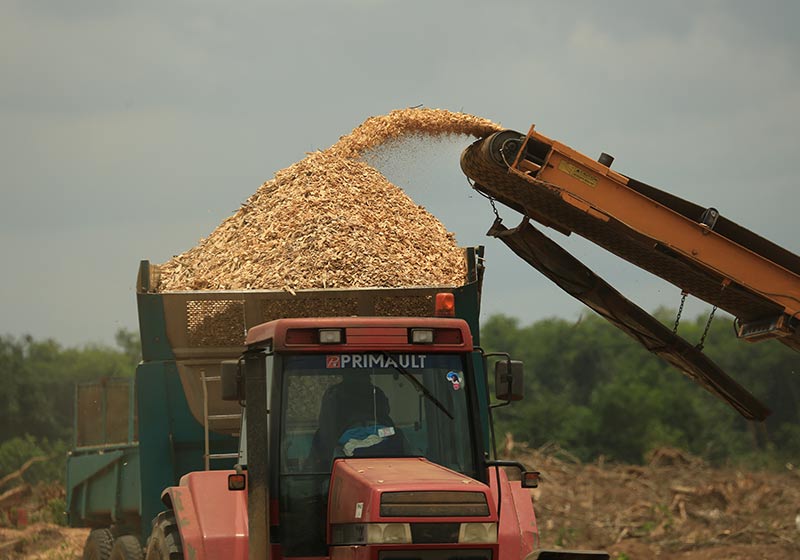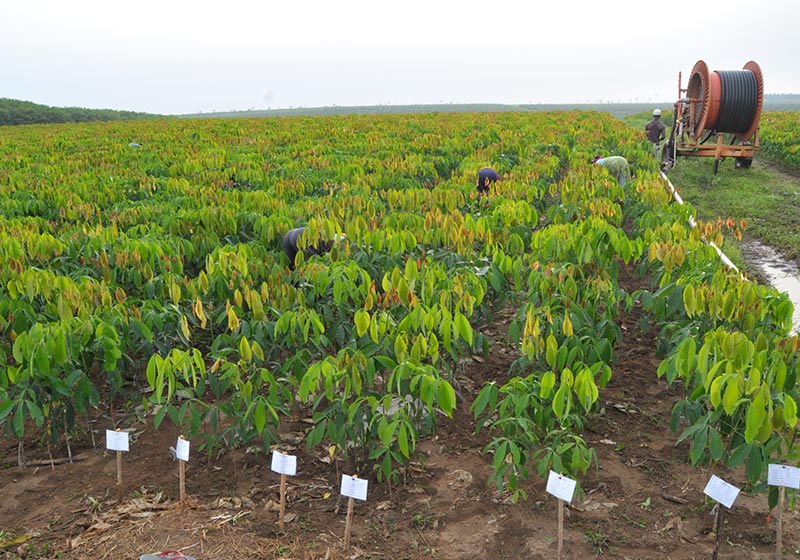SIPH’s core activity is the production, processing, and marketing of natural rubber. SIPH has plantations and factories across western Africa. SIPH’s main market is the international tire industry, for which natural rubber is an indispensable raw material.
SIPH produces rubber wood and wood chips as biproducts of its plantation management. SIPH also owns and manages oil palm plantations and provides agronomy and other services to out-grower farmers.
Natural rubber latex is a secretion from the Hevea Brasiliensis rubber tree which has a commercial lifespan of about 40 years. Rubber trees are mature for tapping at about 6-7 years old. Tapping is carried out during most of the year and is a skill acquired through training and practice.
Tapping takes place regularly, approximately every 5 days during the year. However, in West Africa the first six months represents only 40% of the annual yield due to the dry season and a period where the trees undergo their “wintering” period and lose their leaves, the latex yield is reduced as the trees re-foliate. At the end of their commercial lifespan, rubber trees are felled and the area can be replanted. Research and development have resulted in the breeding of higher yielding and more disease and damage resistant clones enabling the replanting to be carried out with much higher performing more productive planting material.
SIPH has more than 60,000Ha of rubber plantations and usually combines raw material from the plantations with that bought directly from thousands of smallholder farmers when processing rubber for customers. The direct contact with the farmers has enabled SIPH to grow in line with the increase in rubber production in West Africa. Also, this direct contact with the small holders enables SIPH to be actively involved in the development of the local economy and society and to promote measures to preserve and protect the environment. These are parts of our sustainability activities.
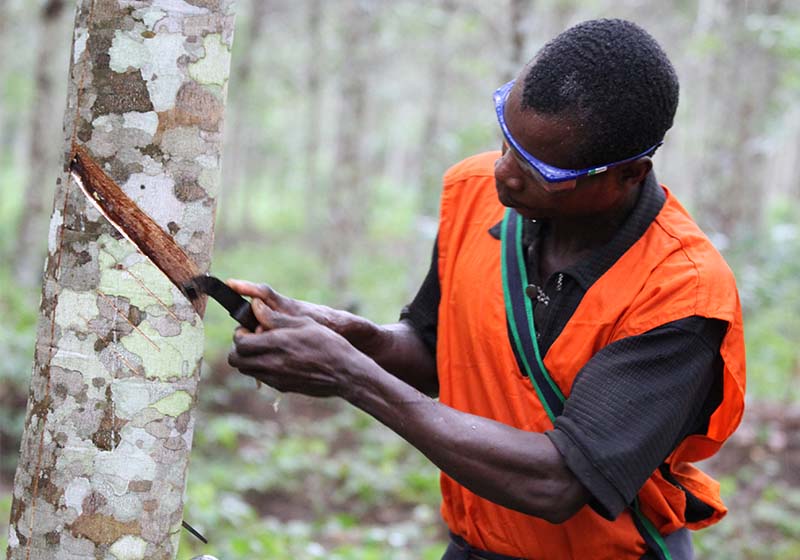
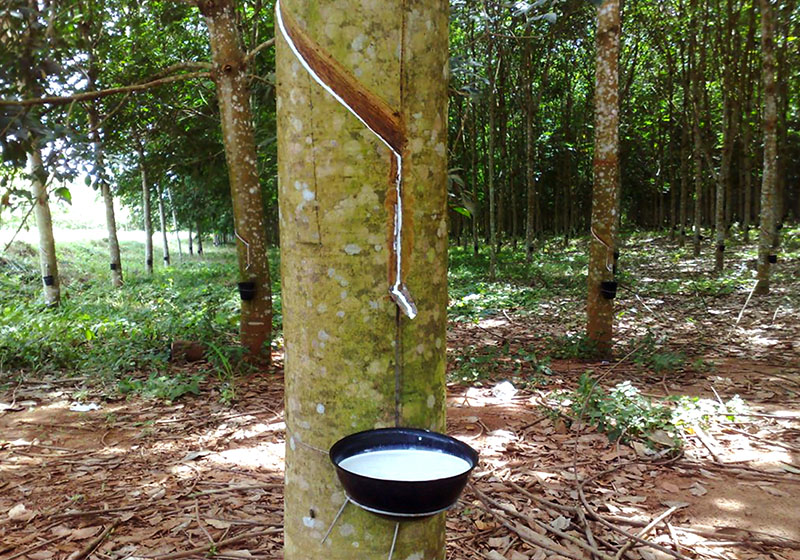
The raw material from the plantations and smallholders mainly consists of coagulated latex in cups, termed cup-lumps, and is processed in SIPH’s subsidiaries’ factories.
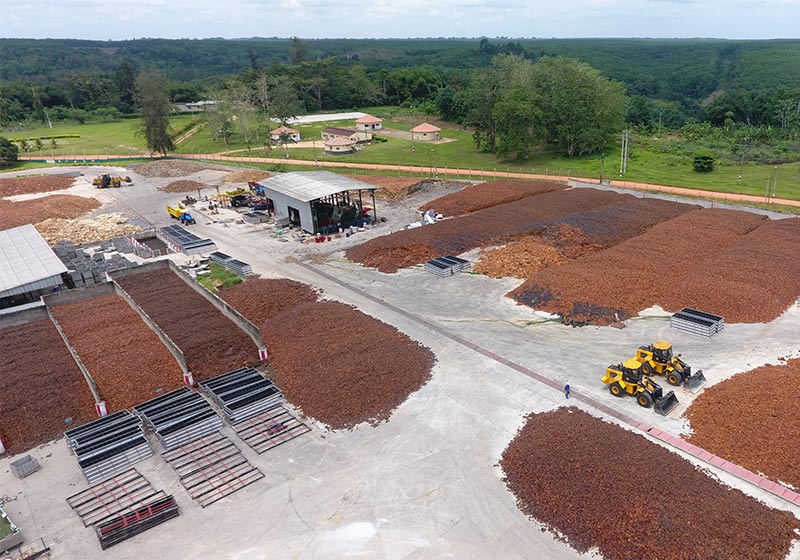
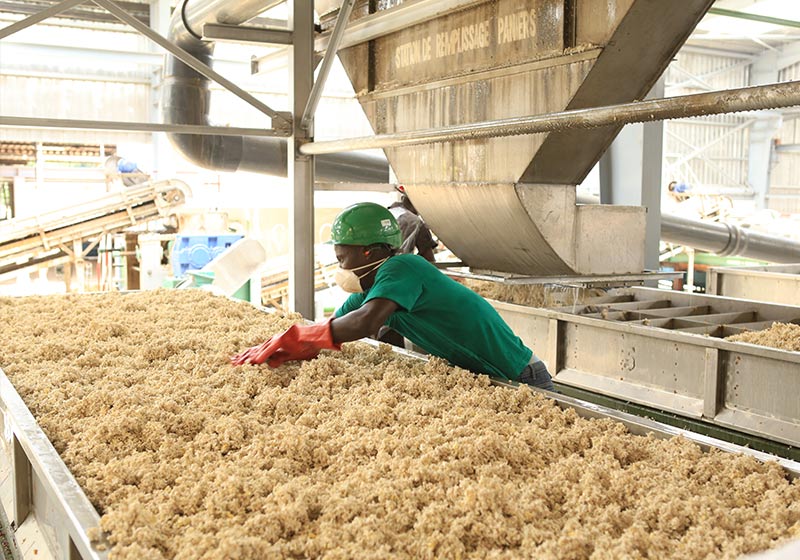
SIPH head office in France and branch office in Singapore market and sell the rubber produced by the subsidiaries. SIPH’s main customers are international tire manufacturers and other automotive product manufacturers but SIPH rubber is also used in many non-automotive products and applications.
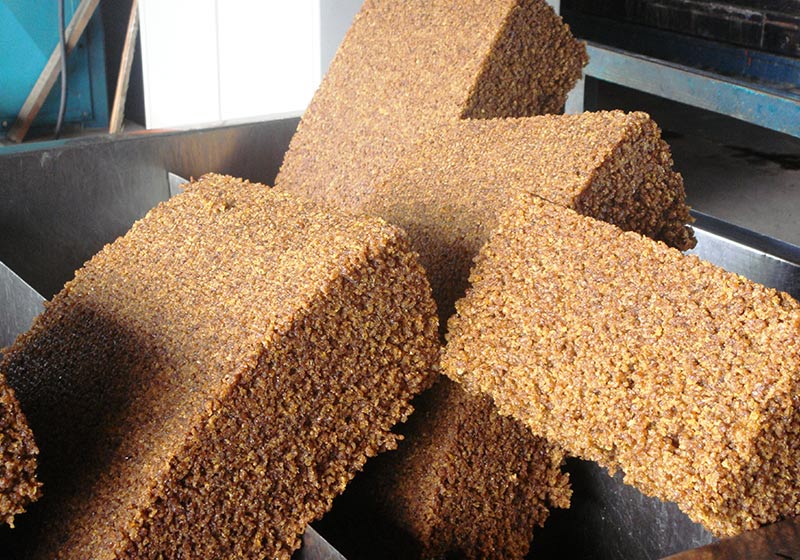
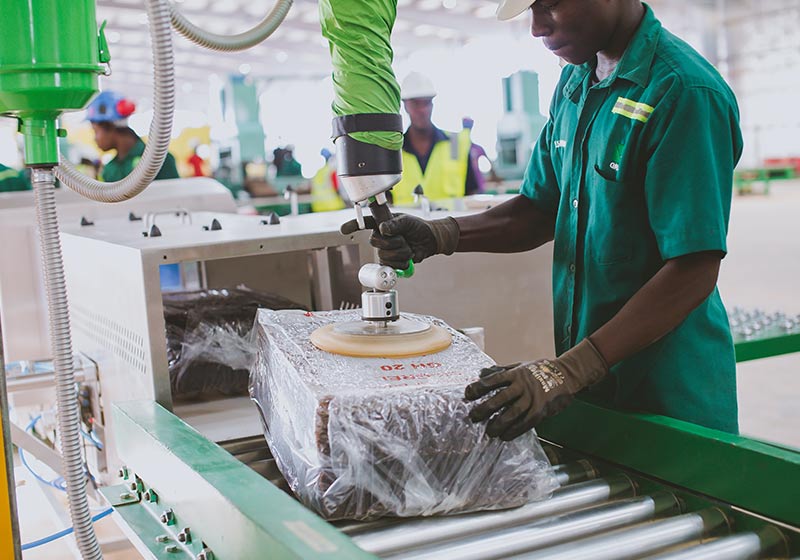
- Wood and Biomass:
After the rubber trees reach the end of their commercial lifespan, they are felled to allow replanting with higher yielding clones.
Rubber wood is collected from the tree trunks and used in industrial and furniture applications. While wood chips and biomass are produced from the remainder of the trees which are used in local industry boilers to generate energy.
- Planting material and service to farmers:
SIPH’s in-house agronomy department manages extensive nurseries producing large quantities of planting material or seedlings. This planting material, with improved yields as well as greater resilience to disease and wind damage, is offered to local out-growers along with technical assistance to ensure optimal growth during the immature phase and subsequently maximize the yield through controlled use of fertilizers and pesticides and improved tapping techniques and frequencies.
- Oil palm plantation:
Some areas unsuitable for planting rubber, many of which had previously been degraded, are planted with oil palm trees (5% of SIPH plantations) this enables SIPH to diversify.
.
